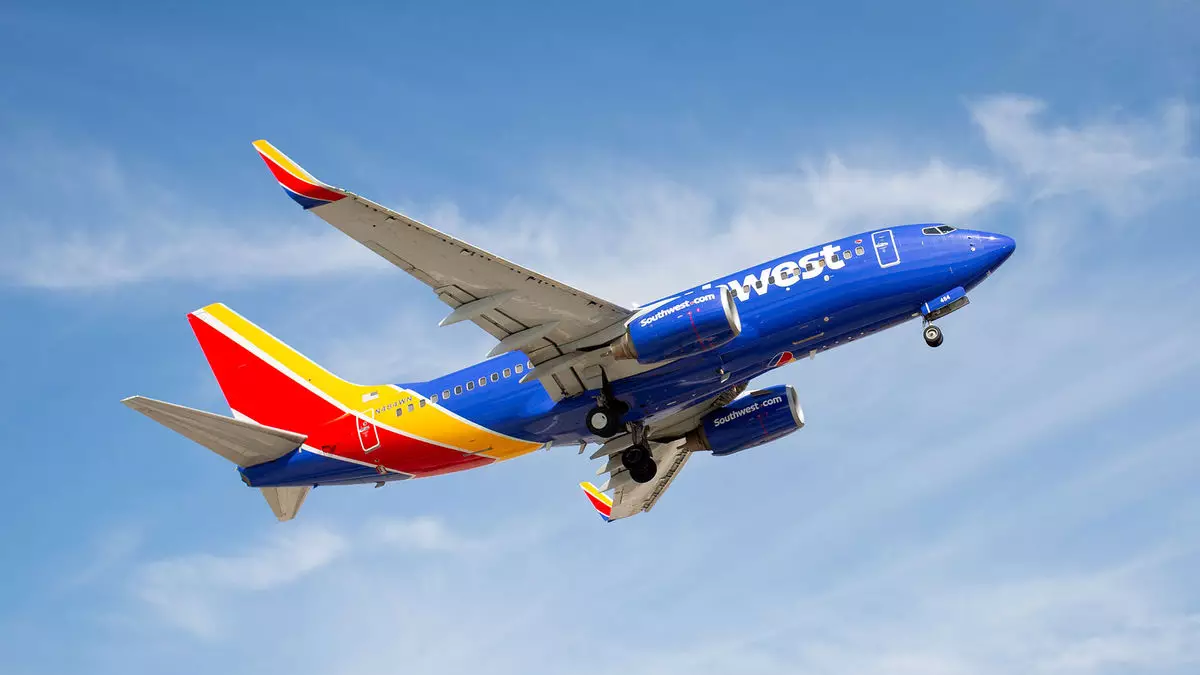In recent weeks, the ongoing battle between Southwest Airlines and Elliott Investment Management has escalated to a critical juncture. Elliott, which owns 11% of Southwest’s outstanding shares, has initiated a proxy vote request aimed at shaking up the airline’s leadership structure. On December 10, this pivotal shareholder meeting could redefine the board’s composition and ultimately impact the airline’s future strategy. The aggressive maneuver comes during a turbulent period for Southwest, prompting concerns over both operational stability and corporate governance.
Elliott’s proposal calls for the appointment of eight new board members while simultaneously ousting eight existing members, including the current Chairman Gary Kelly. Kelly’s impending departure in May adds fuel to these demands, potentially signaling a broader overhaul of the airline’s executive framework. In its response, Southwest Airlines branded Elliott’s bid as „unnecessary and inappropriate,“ asserting that such drastic changes could jeopardize the airline’s ongoing business transformation, particularly as the holiday travel season is on the horizon. The clash raises critical questions regarding the balance between shareholder interests and effective corporate governance.
The stark rhetoric employed by Southwest indicates a defensiveness that suggests a deeper unease about the direction in which Elliott seeks to steer the company. Southwest has pledged to review and address the request in a constructive manner, but it is evident that tensions are running high. This situation forces one to consider the broader implications of shareholder activism: at what point does a shareholder’s influence become detrimental to the company’s mission and stability?
The motivations behind Elliott’s campaign are multi-faceted. The firm’s criticism targets Southwest’s declining profit margins, which have dramatically slipped since 2018, putting them behind competitors like Delta and United. Although Southwest continues to boast a strong brand and a favorable cash position, Elliott’s argument hinges on a perceived disconnect between the airline’s strategic direction and the realities of the competitive landscape. By advocating for new leadership, Elliott claims to be positioning the company for revival and enhanced shareholder value.
Elliott’s proposed board could introduce a wealth of experience, including former CEOs from high-profile airlines and hospitality brands. Such a strategic move could indicate a shift in operational philosophy toward heightened performance metrics and an eagerness to innovate. However, the effectiveness of this approach remains to be seen, particularly given the operational challenges Southwest faces, including staffing, fleet management, and customer service issues.
In recent communications, Southwest has made a case for its own strategic vision, introduced during its Investor Day briefing on September 26. The airline is focused on innovative approaches to capture revenue generation, aiming for an estimated $4 billion in incremental revenue and an operating margin of 10% by 2027. Key initiatives include introducing extra-legroom seating, assigning seats, and collaborating with international partners, which could revitalize its competitiveness.
Moreover, Southwest is keen on enhancing operational efficiency by implementing new flight schedules and reducing aircraft turnaround times. These efforts reflect a commitment not only to current shareholders but also to the long-term sustainability of the airline. As tempting as it may be to seek radical changes, Southwest’s leadership believes that a calculated and steady approach may yield more impactful results over time.
As the December 10 proxy vote approaches, the implications of Elliott’s challenge loom large over Southwest Airlines. Shareholders will face a critical decision that could fundamentally alter the airline’s operational framework. The situation exemplifies the delicate balance between pursuing aggressive shareholder interests and preserving organizational stability during uncertain economic times.
In the final analysis, while activist investors like Elliott play an essential role in holding companies accountable, the risks associated with abrupt strategic shifts must not be underestimated. Stakeholders must carefully weigh immediate benefits against the potential long-term ramifications for Southwest Airlines, especially as the airline industry continues to grapple with post-pandemic recovery challenges. With everything on the line, the next steps taken by both Elliott and Southwest will be closely monitored by investors, analysts, and the broader market as they navigate this pivotal moment.


Napsat komentář